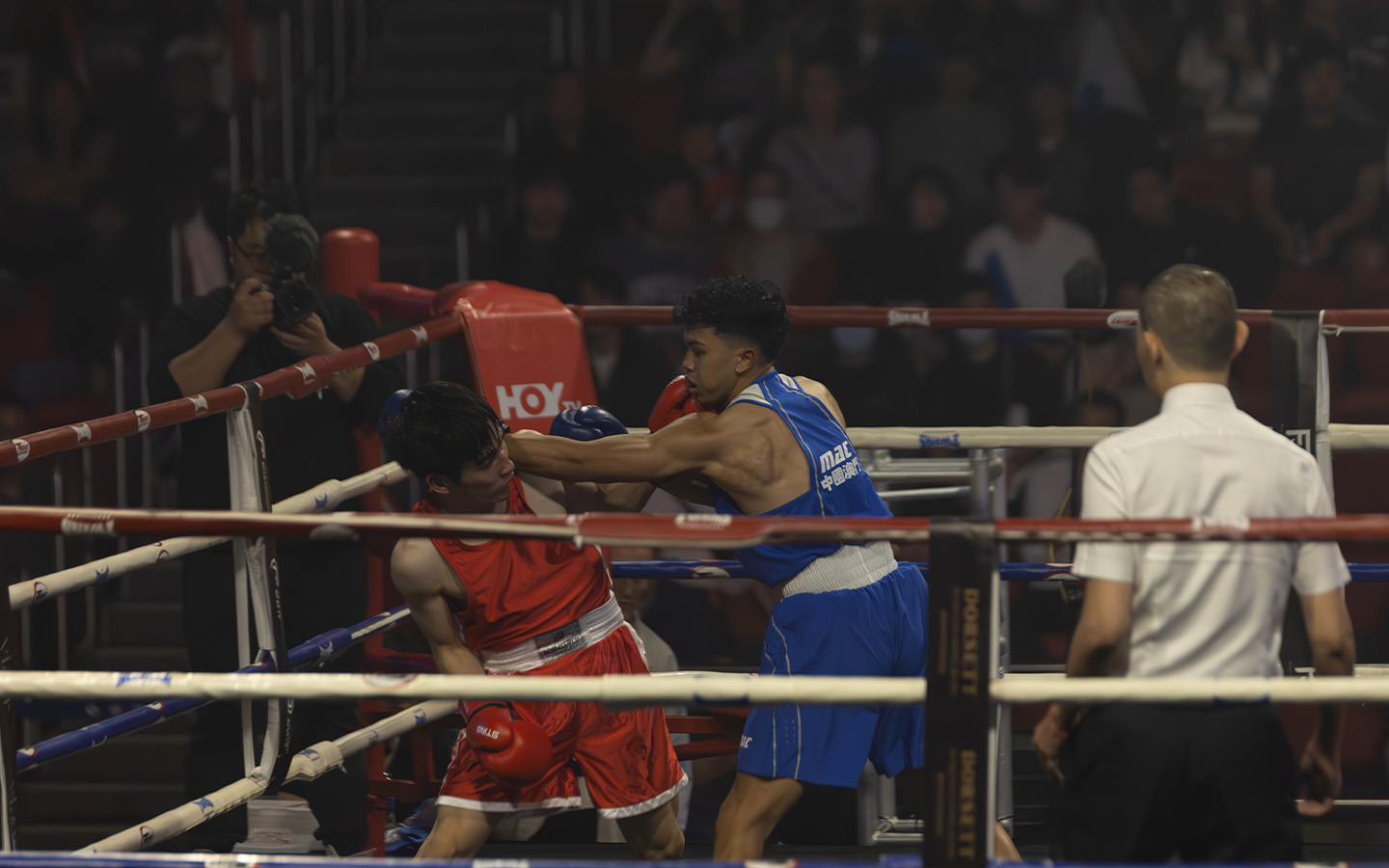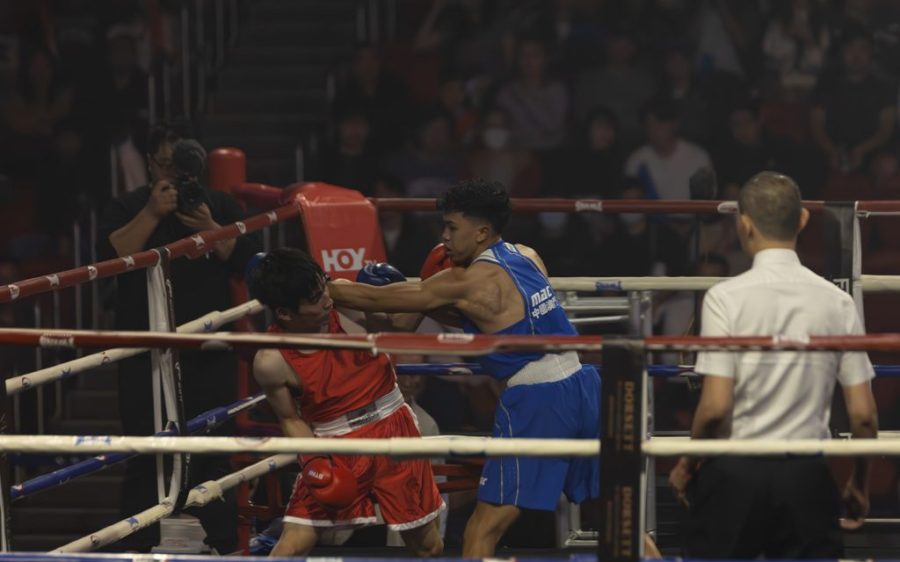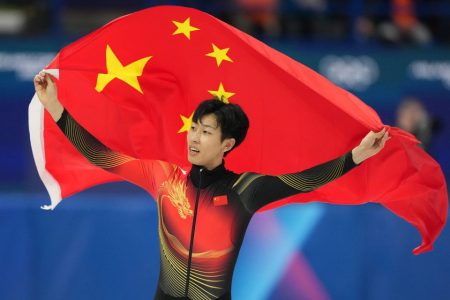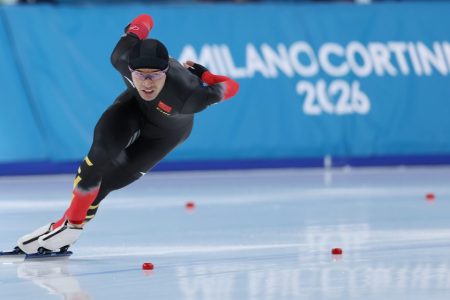Alvin Salinas, a 22-year-old boxer from Macao, may have picked up the sport comparatively late, but he’s making up for lost time. Despite facing challenges – like the lack of proper training facilities and the limited attention paid to homegrown boxing in Macao – Salinas has competed in over 20 amateur bouts and continues to push his limits.
The young fighter will step into the ring at the Ultimate Extreme Fight, Hong Kong’s premier amateur boxing event at the Southorn Stadium tomorrow.
Recently back from a gruelling boxing camp in the Philippines, Salinas sat down with Macao News to share insights into his training experience and boxing journey so far.
When did you first get into boxing?
Before boxing, I played other sports like freestyle skipping rope, track and field and tchoukball. I didn’t start boxing until I was 17 years old, which is kind of late compared to most people.
[At first] it was a fun way to stay fit but man, boxing turned out to be so much more than that. It changed me in so many ways. I loved the intensity and discipline. If I could handle the challenges in the boxing ring, I felt I could tackle anything life threw at me.
[See more: I Ask, You Answer: João Ramos, aka Black Joe]
Then some of the coaches at my school noticed my potential. They encouraged me to take it more seriously and even try competing. After three months of learning boxing, they asked me to join a local competition. I was so nervous but excited at the same time. Even though I didn’t win that first match, I had so much fun and wanted to keep going.
Did your family have any connection to boxing?
Oh, don’t get me started on boxing and my family. My parents are from the Philippines where there’s only one name: Manny Pacquiao. He’s like a national hero and a huge source of pride for Filipinos.
My family knew about boxing but never expected me to get into it, let alone compete. But they supported me once they saw how serious I was about boxing. My dad has never missed a fight, even when I tried to keep it a secret. My mom, on the other hand, can’t bring herself to watch. Even if I post videos of my fights online, she’ll scroll past them. She just can’t handle seeing me get punched or my face getting hurt [laughs].
My brother Paul has been a huge inspiration. I looked up to him a lot. He represented Macao in football and I wanted to be like him, representing Macao in something I am passionate about.
When did you feel like you had a grasp of boxing?
I wouldn’t say I’ve fully grasped it yet. Boxing is complicated and there’s always something to improve like your style, technique and mindset. Even if you feel like you’ve got it, you realise there’s more to learn.
That said, I’ve come a long way since I started. I’ve gained a lot of confidence from competing. At first, I was nervous because I had no fights to compare myself to, but now, with so many competitions, I feel much more sure of myself.
[See more: UFC Macau weigh-ins: Full card, including Yan vs. Figueiredo and Yan vs. Ricci, gets the green light]
I used to keep my fights low-key and secret, but now I say, “Why not come watch my fight?” It’s a chance to see how far I’ve come.
Describe your fighting style in a few words.
Fast and hard-hitter.
What do you think it takes to be a good fighter?
The hardest part of being a boxer isn’t even in the ring, it’s outside of it. You have to make so many sacrifices. You need to avoid parties and sometimes even friendships. You have to leave behind your social life if you want to compete at a high level.
For me, the discipline is the hardest part. It’s about staying consistent, training every day and giving up so much to be better.
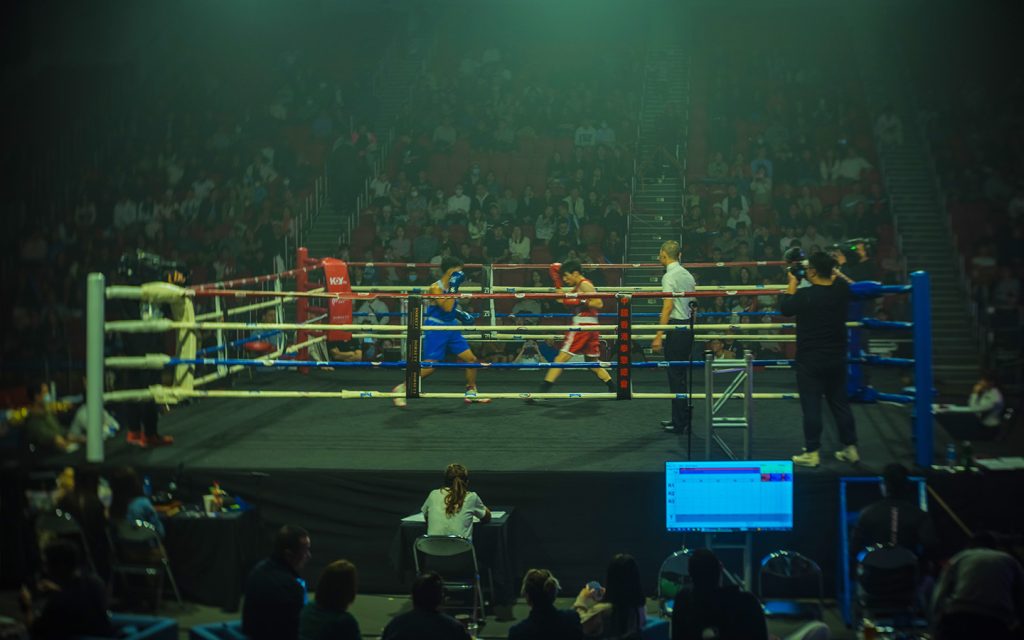
Is the fight in Hong Kong one of your biggest fights so far?
Yes, because it’s for my first belt. Last year, I had a big fight during this same event. But this time I’m fighting for something I’ve never had before, an amateur fighting belt.
I’ve won trophies and medals before but a belt means something different. It’s more than just recognition. It’s proof that I’ve reached a new level. I’ve had to go outside Macao to find tougher competition because there aren’t many fighters here to train or compete with.
What are some things you carry with you when you fight?
My cross, and photos of my dogs, Minnie and Kimchi.
What’s it like training in Macao?
I think Macao is a privileged place in many ways. We have great benefits and the government genuinely supports the people here. But when it comes to training, especially for combat sports, it’s challenging.
Even though we have access to gyms and facilities, the mindset around combat sports here isn’t very positive. There’s no real foundation for boxing in Macao, so if you want to grow and represent Macao, you have to leave.
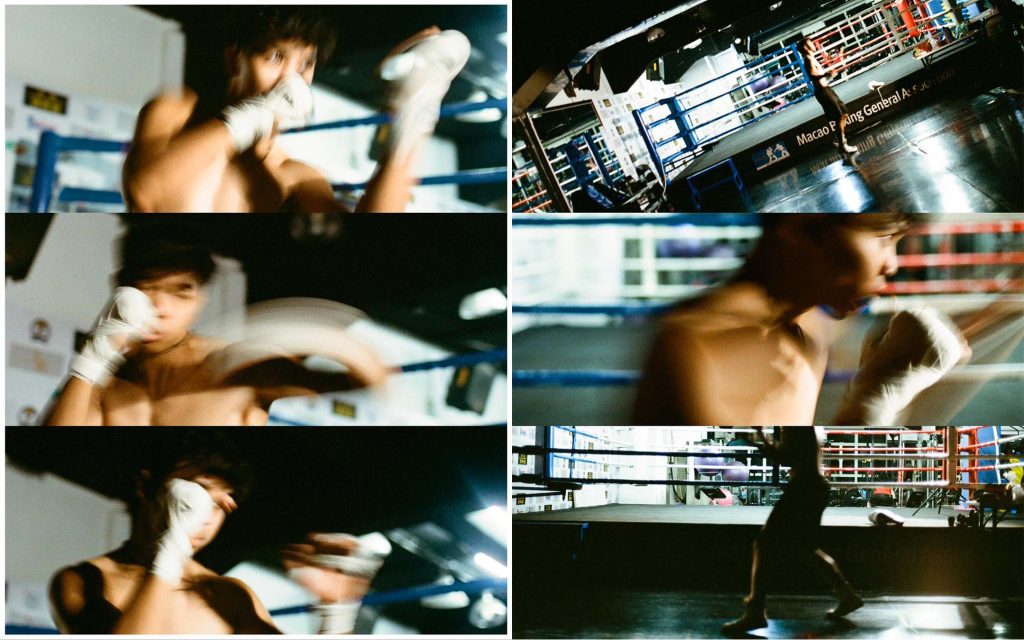
For example, there’s one professional fighter from Macao that I look up to, Cheong Lap Cheong. Funny enough, we hadn’t met in Macao, but we ran into each other while training in the Philippines. Even he has to leave Macao to train and compete.
So yes, we have a lot of benefits here, but the government needs to do more to support athletes and not just in boxing, but across all sports. They need to focus more on smaller sports communities, not just the bigger ones. Whether it’s financial support or helping athletes compete abroad, I hope the government can pay more attention to these areas to help Macao athletes succeed.
Tell us about your boxing camp
My family and I found Elorde Boxing Gym in Manila through Facebook. My parents had heard of the gym and knew it was legit, especially since Pedro Taduran – a world champion – trains there. This was my first time at a proper boxing camp. It was scary at first because I didn’t know what to expect. We don’t have access to this kind of training in Macao.
This was also my first time travelling outside of Macao, besides China. Flying to the Philippines alone was a big step for me and my parents were nervous because they’d never seen me leave the house like that. I was nervous too. I was still in my comfort zone back in Macao. But once I got there, I was blessed to meet many amazing people.
The gym was full of professional fighters and training with them as an amateur was an incredible experience. They were so good and it gave me a lot of confidence to be surrounded by people who shared the same passion.
I planned to stay for two weeks but told my coach I wanted to stay longer because I was learning so much. The people there were on another level and I wanted to take full advantage of the opportunity.
What was your daily routine like at the camp?
It was the life of a professional boxer. We’d wake up around 5:30 or 6:00 am and jog or sprint for about an hour. After that, we’d do strength and conditioning, usually on Tuesdays, Thursdays and Saturdays. Sparring days were on Mondays, Wednesdays and Fridays. I thought I was disciplined before this, but they were on another level.
Around noon, we’d work on skills training, even though the timing was tough because it was right in the middle of lunchtime. But after every training session, it felt rewarding. We’d wrap up the day early, prepare for the next day, and go to bed by 10:00 pm. Sundays were our only rest days.
[See more: Ugo Ugochukwu says ‘winning in Macao was one of the happiest days of my life’]
The biggest lesson was understanding the importance of surrounding yourself with people who are better than you. In Macao, after a few years of training, I felt like I was at a high level, just because most people here are new to boxing.
But when I got to the Philippines, I realised I was the lowest of the low. That humbled me and motivated me to work harder. Being surrounded by champions and earning their respect was something I’ll never forget.
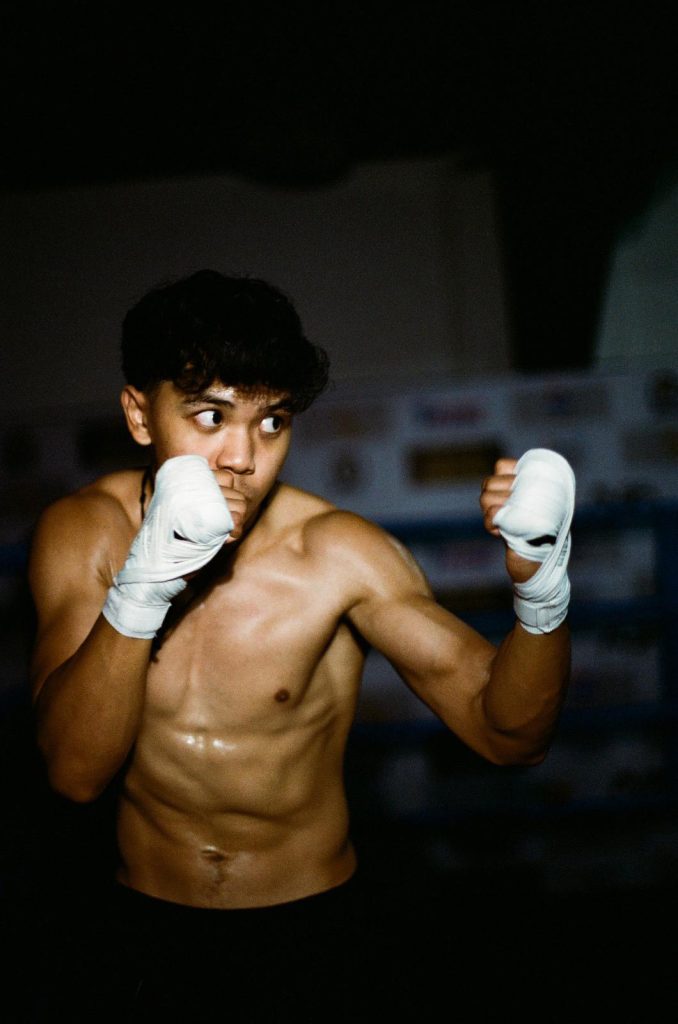
What’s your favourite cheat meal?
Red velvet cake, cheesecake, and maybe some cookie dough ice cream.
What are your goals?
My main goal is to represent Macao on an international stage and to compete in high-level tournaments. I’d also love to compete in events like the Asian Games or even become a professional fighter. I want the world to know that there’s someone from Macao who can compete at their level.
But beyond that, I want to inspire people in Macao, especially athletes. We may come from a small city, but we have a lot of heart.
